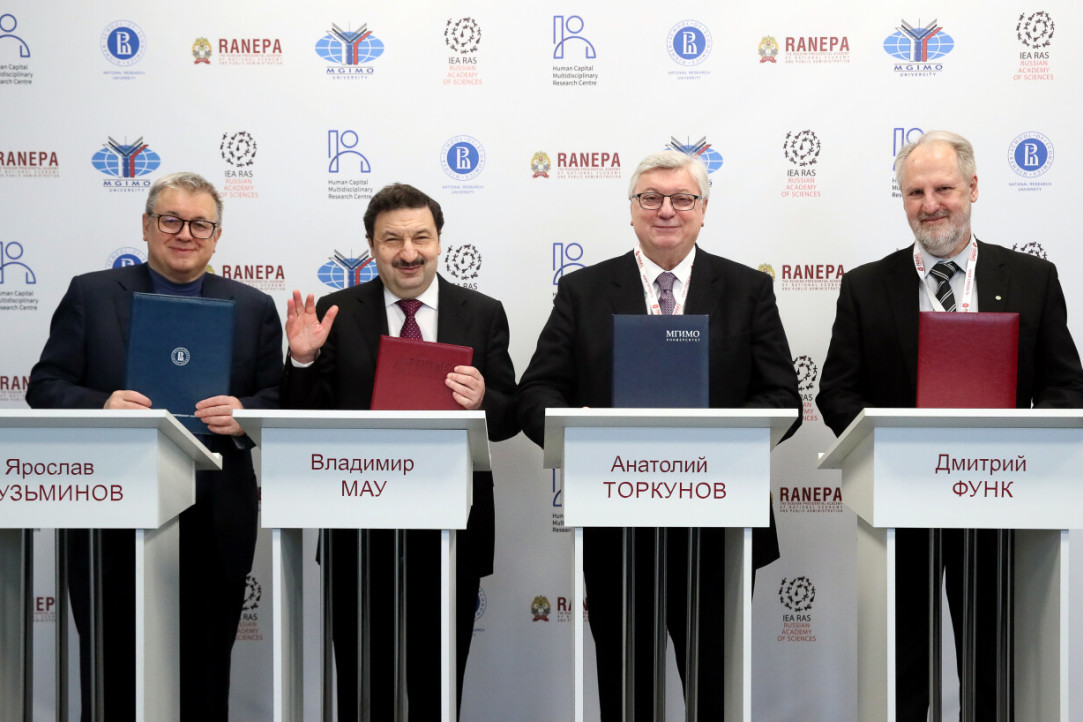
Global Restructuring: The World Community Prepares to Fight Climate Change
More than a hundred countries have already declared the achievement of ‘zero emissions with the exception of absorption’ to be their primary goal in the fight against climate change. For Russia, whose primary export is fossil fuels, the global rejection of hydrocarbons poses great risks. Experts discussed the issue at the research seminar, ‘Decarbonization as a Global Trend: Changing the Economic Landscape and Its Importance for Companies’, which was jointly organized by HSE University and the Association of European Businesses.

Taming the ‘Black Swan’: Who Will Win the Fight Against the CoronaCrisis
Countries with reserve currencies, sufficient fiscal capacity to implement soft fiscal policies, and access to global capital markets have the best chance of recovering from the coronavirus crisis. The rest may need external assistance. These are the conclusions drawn by Alexei Kireyev, leading IMF economist and visiting professor at HSE University’s School of World Economy.

Middle-Class Russians Reduce Spending When It Comes to Themselves but Not Their Children
Middle-class Russians are more likely to reduce spending on the development of their own human capital and prioritize investing in their children instead, particularly when it comes to their children’s education. This is evidenced by a study conducted by the Centre for Studies of Income and Living Standards of HSE University.

How Lockdown Has Changed Life for Russian Women
Researchers Yulia Chilipenok, Olga Gaponova, Nadezhda Gaponova and Lyubov Danilova of HSE – Nizhny Novgorod looked at how the lockdown has impacted Russian women during the COVID-19 pandemic. They studied the following questions: how women divided their time; how they worked from home; how they got on with their partners and children; and how they dropped old habits and started new ones in relation to nutrition, health, beauty, and self-development.

Catastrophe and Opportunity: HSE University Experts Learn the Lessons of Crises of the Last Hundred Years
The idea for the project, which studies the crisis experience, was born at HSE University’s Faculty of World Economy and International Affairs last spring, when it became clear that the pandemic and lockdown had given rise to a new systemic crisis, based on numerous contradictions that have accumulated in the world over the past decades. The results of the scientific Lessons from the Crises of the Past project have been presented to the portal's news service by Igor Makarov, Head of HSE University’s School of World Economy.

Almost Half of Russians Suffer from Loneliness
In Russia, 43.1% of the adult population experiences loneliness. This share is comprised mostly of older people, but quite often young people as well. At each age, loneliness is experienced in its own way, and at certain times it becomes especially painful.

This Is Robot Speaking: A Social Scientist’s Perspective on Human-Robot Interaction
Whether we like it or not, talking with a robot on the phone is now part of our everyday lives. What is the right way to respond to a mechanical voice, who should we blame when communication fails, and could AI make an ideal conversationalist? HSE sociologist Alisa Maksimova answers these questions and more, based on findings from her study of interactions between humans and robots presented in the book Adventures in Technology: Barriers to Digitalisation in Russia.

HSE University and Consortium Partners Aim to Take Human Capital Studies to New Level
On January 14, at the 2021 Gaidar Forum, which was held at the Russian Presidential Academy of National Economy and Public Administration (RANEPA), HSE University Rector Yaroslav Kuzminov and leaders of three other institutions signed an agreement to establish the Human Capital Multidisciplinary Research Center (HCMRC). The other co-signers were RANEPA Rector Vladimir Mau, MGIMO University Rector Anatoly Torkunov, and Dmitry Funk, Director of the N.N. Miklukho-Maclay Institute of Ethnology and Anthropology of the Russian Academy of Sciences. The Center will focus on that key areas of human capital studies that are of current global importance.

MIEM Professor’s Papers Among Most Popular Publications on SpringerLink
The paper by Yury Budkov, Professor at HSE MIEM School of Applied Mathematics, co-authored with Andrey Kolesnikov from Leipzig University, was initially published by a Russian journal, Polymer Science. Its English version was published by SpringerLink, where it generated considerable interest among visitors.

Doctoral Education Discussed in Higher Education and Beyond Journal
The latest issue of Higher Education and Beyond, a quarterly informational journal published by HSE University, looks at how doctoral education has changed over the past few years in different countries, what reforms have been implemented and what effects they have had, what the historical roots of the current state of doctoral education are and how doctoral studies have evolved. The articles cover wide range of doctoral education stakeholders—from those who plan to enter doctoral programs to those who got their degree many years ago

